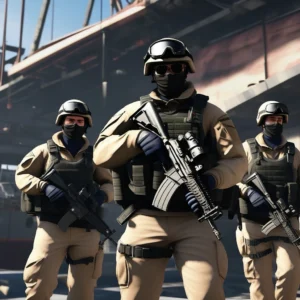In the military, facing an AR 15-6 investigation can be a daunting experience. Whether you are a servicemember accused of misconduct or a family member seeking to support your loved one during a turbulent time, understanding the AR 15-6 investigative process is vital. As military personnel, your career, reputation, and daily life could be significantly impacted by the outcome of these investigations. According to a 2021 report by the U.S. Department of Defense, over 3,000 investigations were initiated under AR 15-6 each year, highlighting how common and serious these inquiries can be.
So, what should you do if you find yourself caught up in an AR 15-6 investigation? This article aims to provide you with comprehensive insights and answers to frequently asked questions regarding AR 15-6 investigations, practical advice to help protect your rights, and effective steps to navigate this challenging process.
What is an AR 15-6 Investigation?
AR 15-6 (Army Regulation 15-6) outlines the procedures for investigating allegations of misconduct within the Army. This regulation exists to ensure that misconduct—or improper actions, whether administrative or criminal—is addressed in a fair and just manner. These investigations can cover a wide array of issues, from minor infractions to serious allegations like harassment or misconduct.
Key Elements of AR 15-6 Investigations:
- Purpose: AR 15-6 investigations aim to gather facts and provide recommendations based on findings.
- Authority: Commanders or designated civilians must initiate investigations to determine the validity of claims made against servicemembers.
- Scope: Investigations can range from informal inquiries to comprehensive investigations that involve numerous witnesses and extensive documentation.
Why Are AR 15-6 Investigations Important?
AR 15-6 investigations are crucial because they can lead to various outcomes, including administrative actions, disciplinary measures, and even criminal charges. The results of these investigations can impact:
- Career Advancement: A negative finding can hinder promotions and job assignments.
- Reputation: An investigation—even without a finding of misconduct—can tarnish a servicemember’s reputation.
- Legal Consequences: Depending on the findings, legal proceedings may follow.
Understanding these implications is essential to navigate the process effectively.
What to Expect During an AR 15-6 Investigation
If you are under an AR 15-6 investigation, here’s a comprehensive breakdown of how the process typically unfolds:
-
Initiation:
- The commander receives a complaint.
- They decide to initiate an investigation based on pre-determined criteria outlined in AR 15-6. 2. Appointing Investigators:
- A qualified investigator is appointed. This investigator can be a senior officer, a civilian, or a designated official.
-
Information Gathering:
- The investigator collects data, interviews witnesses, and reviews documentation related to the incident.
-
Report Preparation:
- Once all information is gathered, the investigator compiles their findings into a report.
- This report includes recommended actions based on the collected evidence.
-
Commander Review:
- The commander reviews the report and decides on the next steps, which may include command action or further inquiries.
Frequently Asked Questions About AR 15-6 Investigations
What Should I Do If I’m Under Investigation?
- Stay Calm: It’s vital to maintain composure during this stressful time. Reacting impulsively can exacerbate the situation.
- Seek Legal Counsel: Hiring an experienced military defense lawyer can help you navigate the complexities of the investigation and protect your rights.
- Document Everything: Keep detailed records of conversations, meetings, and any related events.
- Avoid Discussing the Investigation: Limit discussions about the investigation, especially with fellow servicemembers.
How Should I Prepare for an Interview During the Investigation?
- Know Your Rights: Understand that you have the right to remain silent and request a lawyer present during questioning.
- Review Relevant Documents: Familiarize yourself with any related documentation before the interview.
- Prepare Thorough Answers: Think about potential questions and your responses ahead of time.
Hiring the Right Civilian Defense Lawyer
Choosing the right civilian defense lawyer to represent you during an AR 15-6 investigation can significantly impact the investigation’s outcome. When hiring a lawyer, consider the following:
- Experience: Look for attorneys who specialize in military cases and have a proven track record.
- Reputation: Seek reviews and testimonials from past clients.
- Communication: Choose a lawyer who communicates effectively and keeps you informed throughout the process.
The Next Steps After an AR 15-6 Investigation
Once the investigation concludes, you will typically receive a copy of the report. Based on the findings, the commander may take several actions:
- No Further Action: If there’s insufficient evidence of misconduct, the matter may close without further action.
- Administrative Action: This can involve counseling, reprimands, or remedial training.
- Disciplinary Action: Serious findings may lead to Non-Judicial Punishment (NJP) or a court-martial.
Conclusion
AR 15-6 investigations can have far-reaching consequences for active-duty servicemembers. The weight of your career and reputation is often on the line. By understanding the investigation process and knowing your rights, you can take proactive steps to navigate this challenging situation effectively.
If you or a loved one are facing legal issues in the military, contact Gonzalez & Waddington, Civilian Military Defense Lawyers, at 1-800-921-8607 for a free consultation. Our experienced team represents servicemembers worldwide.
For more information about military regulations, consult official resources at Army Publishing.
Taking control of the situation today can lead to a more favorable tomorrow. You are not alone in your fight; resources and support are available to help you through this process.



